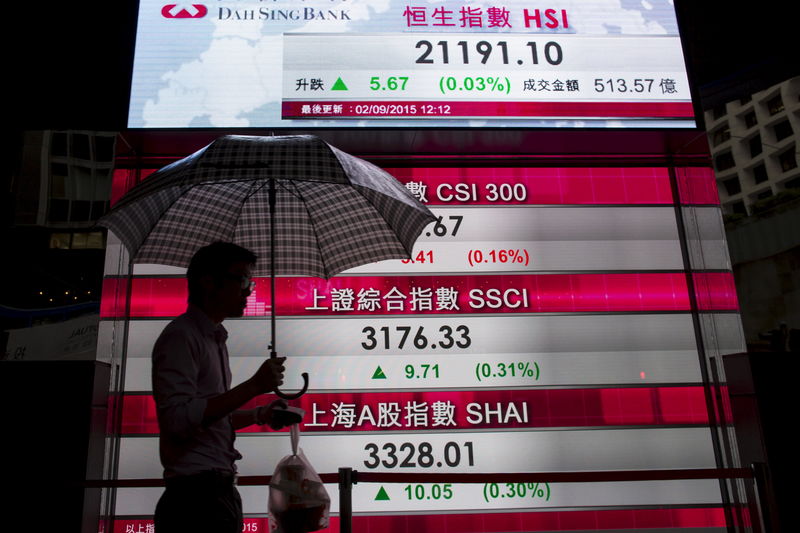This post was originally published on this site

Investing.com – Asia Pacific stocks were mostly down on Wednesday morning as tightening global sanctions against Russia cast a shadow over shares in Europe and the U.S.
Japan’s Nikkei 225 fell 1.98% by 9:51 PM ET (2:51 AM GMT), while South Korea’s KOSPI inched down 0.03%.
In Australia, the ASX 200 inched up 0.07%. The Reserve Bank of Australia kept its interest rate unchanged at 0.10%.
Hong Kong’s Hang Seng Index was down 0.97%. The government is reportedly planning a four-day lockdown amid compulsory Covid-19 testing later in March.
China’s Shanghai Composite was down 0.34% while the Shenzhen Component fell 1.55% .
The U.S. is expected to ban Russian aircraft from American airspace, following similar moves by Europe and Canada.
“The Russia-Ukraine conflict will probably continue to dominate markets for the foreseeable future. The announcement yesterday that Russia will not pay coupons to foreign holders on its government debt should push investors further into safe-havens,” ING analysts said in a note.
“Support for starting the EU membership process for Ukraine shows the unity of support for Ukraine from Western Europe but is unlikely to help calm tensions.”
A string of major companies announced to suspend or exit their business in Russia.
The price of oil surged over $100 per barrel on Wednesday morning, although the global agreed to release 60 million barrels of crude reserves to restrain price increases.
“We’re starting to see what impact these sanctions could have on Russian oil exports and the challenges they pose and that’s driving the price higher,” Craig Erlam, senior market analyst at OANDA, told Reuters.
“We saw an underwhelmed reaction when this happened in November as well and that was before Russia invaded Ukraine,” Erlam said.
The benchmark U.S. 10-year yield rose to 1.7548% from 1.711% late on Tuesday. Investors are concerned about aggressive interest rate hikes of the U.S. Federal Reserve in the next few months due to the worsening conflict.


